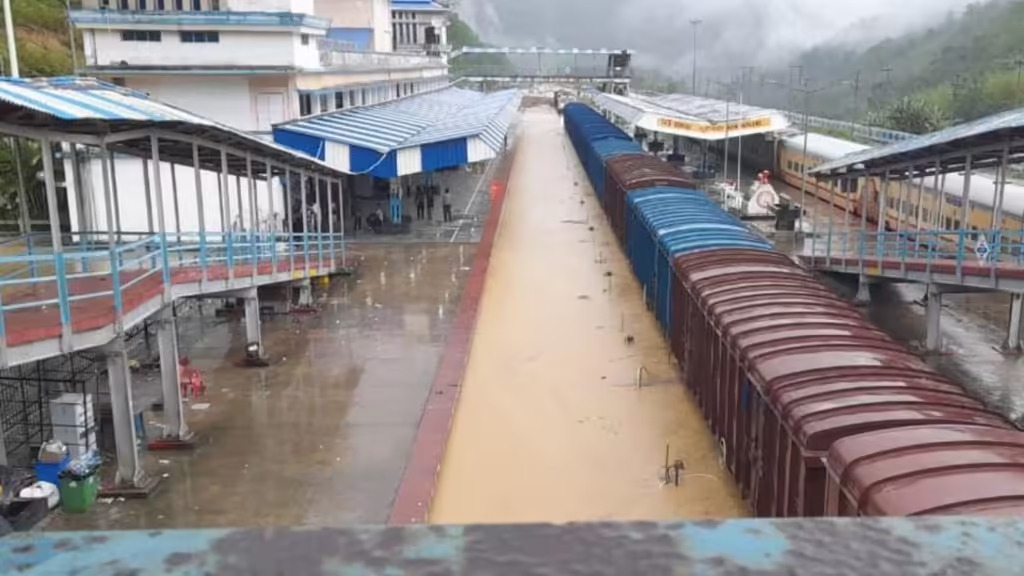The restoration work on the Assam-Mizoram railway track has faced significant delays due to persistent flooding in the Dhaleswari River. The Northeast Frontier Railways (NFR) announced that the crucial interstate railway track connecting Assam and Mizoram will not see restoration efforts until the water levels in the Dhaleswari River decrease. This situation follows relentless rainfall that has caused the river’s water levels to rise alarmingly.
The Dhaleswari River, a vital waterway in the region, has been at the center of the disruption. Heavy rainfall over the past few weeks has resulted in severe flooding, which has overwhelmed the river’s banks. As a consequence, the railway track has been heavily impacted, with sections being submerged or damaged, making it unsafe for operation. NFR officials have emphasized that until the river’s water levels fall to safer levels, restoration work cannot proceed effectively.
Authorities have been monitoring the situation closely, but the persistent nature of the rainfall has made predictions difficult. The water levels in the Dhaleswari River continue to fluctuate, complicating the planning and execution of the restoration work. The region’s infrastructure, including the vital railway track, remains vulnerable as long as the flooding persists. The railway track serves as a critical link between Assam and Mizoram, facilitating passenger and freight movement. Its closure has disrupted travel and commerce, creating a ripple effect on the daily lives of residents and businesses in both states.
In response to the crisis, local officials and railway authorities have been working tirelessly to mitigate the impact of the flooding. Emergency measures have been put in place to manage the immediate effects of the river’s rise. However, the scale of the flooding has necessitated a more comprehensive approach to address the situation. Engineering teams are on standby, prepared to commence restoration work as soon as conditions allow. The teams have been trained to handle such emergencies, but the unpredictable nature of the weather continues to pose challenges.
The delays in restoration work have prompted calls for enhanced flood management strategies and infrastructure resilience in the region. Experts have suggested that investing in flood mitigation infrastructure could help prevent similar disruptions in the future. Such measures could include the construction of elevated tracks, improved drainage systems, and other flood-resistant engineering solutions. These steps would not only protect the railway infrastructure but also safeguard the communities that depend on it.
Meanwhile, the affected states are working together to manage the situation. Assam and Mizoram officials have been coordinating with the NFR to address the immediate needs of the affected populations. Relief efforts are underway to support those impacted by the disruption, including providing alternative transportation options and ensuring that essential supplies reach communities cut off by the flooding.
The impact of the delays extends beyond transportation. Businesses relying on the railway for the movement of goods are experiencing setbacks, which could have long-term effects on the regional economy. Additionally, passengers who depend on the railway for travel are facing inconvenience, with many having to seek alternative means of transportation.
The NFR remains committed to restoring the railway track as soon as conditions permit. The organization has assured the public that it is doing everything possible to expedite the process once the flooding subsides. In the meantime, stakeholders are encouraged to stay informed about the latest updates and to plan their travel and logistics accordingly.
As the region awaits the resolution of this pressing issue, the situation highlights the broader challenges of managing infrastructure in flood-prone areas. The ongoing flood in the Dhaleswari River serves as a reminder of the importance of robust infrastructure planning and disaster preparedness in mitigating the impacts of natural disasters.

